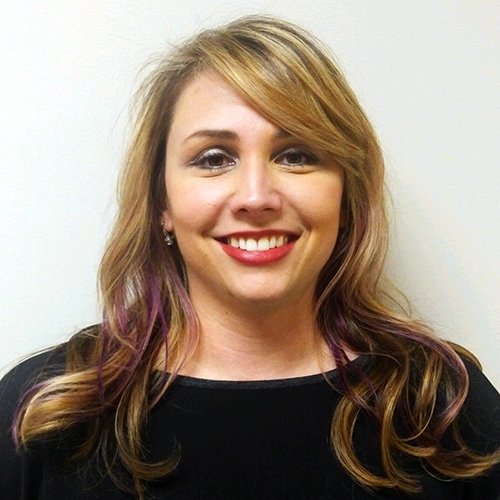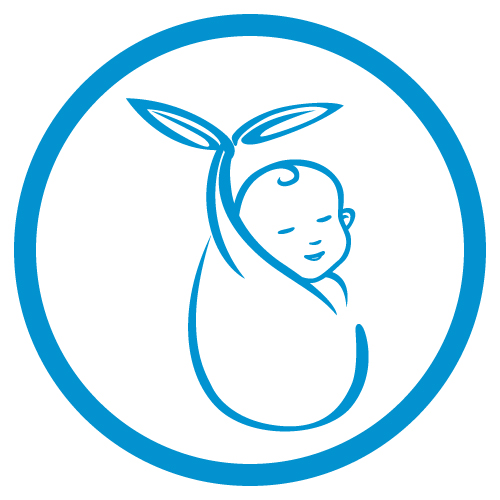 IBCLC Detailed Content Outline: Pathology / Infant Focused CERPs - Section III A
IBCLC Detailed Content Outline: Pathology / Infant Focused CERPs - Section III A
Access CERPs on Pathology / Infant for the IBCLC Detailed Content Outline recertification requirements. On-demand viewing of the latest Pathology / Infant focused IBCLC CERPs at your own pace.

Breastfeeding Medically Complex Infants in the Neonatal ICU

Amber Valentine is a Speech-Language Pathologist who graduated from the University of Kentucky with her MS in Communication Disorders. She is a Board Certified Specialist in Swallowing and Swallowing Disorders and an International Board Certified Lactation Consultant, as well as a Certified Neonatal Therapist (CNT). She worked for Baptist Health Systems, Inc for 8 years before moving to Florida where she worked for Wolfsons Children’s Hospital and Mayo Florida. She is now back in Kentucky working for Baptist Health Lexington. She has experience in adults and pediatrics with feeding and swallowing difficulties including: bedside swallow evaluations, Modified Barium Swallow studies, FEES, and pediatric feeding evaluations including NICU. She has experience with head and neck cancer patient including evaluation and treatment of swallowing difficulties, PMV use, and voice after total laryngectomy including TEP. She has provided guest lectures for the University of Kentucky, Eastern Kentucky University, and the University of Louisville on feeding and swallowing topics. She has presented at the hospital, local, state, national, and international levels on pediatric feeding/swallowing and breastfeeding.
Topic: Breastfeeding Medically Complex Infants in the Neonatal ICU - [View Abstract]
Topic: Building a Successful Breastfeeding Program in the NICU: Challenges and Practical Solutions - [View Abstract]
Feeding is the most complex task of infancy, even in term babies with no complications. There are many diagnoses, conditions, syndromes, and co-morbidities that can impact feeding in neonates and infants. This talk will briefly highlight many of those, but we will focus on three specific populations of interest –Cleft lip and palate, Infants of Diabetic Mothers, and Down Syndrome. We will discuss the specific implications these conditions can have on feeding, why these infants may have difficulty, and the classic symptoms one could expect to see. The differences between delayed and disordered feeding will also be addressed. Strategies and adaptions for both breast and bottle feeding will be discussed. Positioning, nipple flow rate, and external strategies will be explained. Case studies will be shared at the end of the presentation.

View Details / Enroll

View Details / Enroll


Catherine Watson Genna BS, IBCLC is an International Board Certified Lactation Consultant in private practice in New York City. Certified in 1992, Catherine is particularly interested in helping moms and babies breastfeed when they have medical challenges and is an active clinical mentor. She speaks to healthcare professionals around the world on assisting breastfeeding babies with anatomical, genetic or neurological problems. Her presentations and her writing are enriched by her clinical photographs and videos. Catherine collaborates with Columbia University and Tel Aviv University Departments of Biomedical Engineering on research projects investigating the biomechanics of the lactating nipple and various aspects of sucking and swallowing in breastfeeding infants. She is the author of Selecting and Using Breastfeeding Tools: Improving Care and Outcomes (Praeclarus Press 2009) and Supporting Sucking Skills in Breastfeeding Infants (Jones and Bartlett Learning 2008, 2013, 2017) as well as professional journal articles and chapters in the Core Curriculum for Lactation Consultant Practice and Breastfeeding and Human Lactation. Catherine served as Associate Editor of the United States Lactation Consultant Association’s official journal Clinical Lactation for its first seven years.
Topic: Breastfeeding Strategies for Tongue-tied Infants - [View Abstract]
Topic: Critical Assessment of Apparent Tongue-Tie - [View Abstract]
Topic: Introduction to Cervical Auscultation - [View Abstract]
Topic: Lactation Support for Infant Biomedical Challenges - [View Abstract]
Topic: Organization of tongue movements before and after frenotomy for posterior tongue-tie: an Ultrasound analysis - [View Abstract]
Topic: Positioning and Latch for Breastfeeding - [View Abstract]
Topic: Ultrasound Analysis of Sucking: Tongue-Tie and Confounders - [View Abstract]
Topic: Using Breastfeeding Supplementers - [View Abstract]
Tongue tied infants may have difficulties with breastfeeding that impact maternal comfort and milk transfer. This presentation focuses on strategies to support breastfeeding whether or not frenotomy is elected or available.

Breastfeeding The Baby With Congenital Heart Disease

Mariana Colmenares Castano was born in Mexico City, and from an early age she was fascinated by animals and nature.She studied medicine at the National University of Mexico (UNAM), and foundher passion as a pediatrician doing her residency at the National Pediatric Institute. When her first child was born she witnessed the lack of knowledge and commitment to breastfeeding within the medical profession, and so she decided to specialize in breastfeeding medicine. She certified as a Lactation Consultant (IBCLC) in 2011.Mariana is a member of the International Lactation Consultant Association, the Academy of Breastfeeding Medicine, and a proud founding member of the National Lactation Consultant Association of Mexico (ACCLAM), where she served on the Board of Directors as Education Coordinator (2014-2019). She is part of board director for the Academy of Breastfeeding Medicine for a 3 year period (2019-2022) and recently named as secretary for the Academy of Breastfeeding Medicine. Mariana is a member of the team for Breastfeeding Country Index BFCI, a project from Yale University and Universidad Iberoamericana. She is consultant for the National Health Institute in Mexico and has collaborated with UNICEF in breastfeeding projects and part of the steering committee for the WHO. She has spoken at national and international conferences, co-published numerous articles and co-authored a chapter for the National Academy of Medicine. At the moment she is a Clinical Fellow in Community Paediatrics in London.
Topic: Breastfeeding The Baby With Congenital Heart Disease - [View Abstract]
Topic: Breastfeeding with Insufficient Glandular Tissue - [View Abstract]
Topic: Clinical Assessment and Management of Jaundice in the Newborn - [View Abstract]
Topic: Oral Colostrum Care as an Immunological Intervention in the NICU - [View Abstract]
Breastfeeding can sometimes be challenging for some families even when baby and mother are healthy. The immunological and nutritional benefits provided by breast milk must be considered when feeding any baby; it is by far the best start for babies that have any other disease where they can tend to suffer from multiple respiratory infections and other medical complications putting babies’ health, wellbeing and lives at risk. When there is a baby with a congenital cardiac disease we can face a lack of evidence and homogenous practices regarding breastfeeding. Many mothers feel helpless and many surgeons and cardiologists are not convinced that breastfeeding is better and easier for the infant with congenital heart disease. They are uncomfortable with not knowing the volume baby consumes and are not used to observing oxygen saturation and heart rate when the baby is feeding at the breast. Current challenges in treating patients with chronic conditions include the prioritization of breastfeeding, identification of the most effective nutritional interventions, and the prevention or recovery of acquired growth failure.
Children with congenital heart disease who breastfeed have better growth, shorter hospital stays, and higher oxygen saturations than children with congenital heart disease who receive formula. It is necessary to support these families with evidenced based information to promote and support breastfeeding to all mothers and babies. Create programs to meet the needs of these vulnerable babies and train surgical and pediatric staff of the neonatal surgery unit so they can support and facilitate multidisciplinary work.

Breastfeeding With A Tongue Tie. How Can We Help When A Tie Revision Is Not Possible?

Meg is the mother of three breastfed boys and lives with her husband and children in QLD, Australia. She is an International Board Certified Lactation Consultant (IBCLC) in private practice and works with parents to help them reach their breastfeeding goals. She has a degree in psychology and her prior work was is in counselling and sexual health. She was a La Leche League Leader (breastfeeding counsellor) for seven years before becoming an IBCLC. Meg is the author of two books including, "Boobin' All Day...Boobin' All Night. A Gentle Approach To Sleep For Breastfeeding Families". She has published articles in numerous parenting magazines and websites. She was also filmed for a short documentary, "Lactaboobiephobia", based on one of her blog posts which was released in 2016.
Topic: Breastfeeding With A Tongue Tie. How Can We Help When A Tie Revision Is Not Possible? - [View Abstract]
Topic: Exclusively Breastfeeding Triplets-Case Studies - [View Abstract]
Topic: Social Media Backlash – Addressing Emotionally Charged Responses - [View Abstract]
Topic: What to Do When the Laid-Back Breastfeeding Position Doesn’t Work…Self Attachment, the Flipple Technique and the Koala Hold All With a “Hands Off” Approach - [View Abstract]
Breastfeeding a child with a tongue can be very straightforward with no challenges for mother or baby, or can bring numerous challenges and problems. There are circumstances when a tongue tie procedure is not possible or the parents choose to avoid having the procedure, yet want to continue to breastfeed if possible. There are ways that we can help! This presentation involves practical tips and suggestions for health care professionals on how to best support families in this situation including how to best cover different possible outcomes, forming plans and working through challenges.


Barbara D. Robertson, IBCLC, has been involved in education for over 34 years. She received a Bachelor’s degree in Elementary Education in 1988 and her Master’s in Education in 1995. Barbara left teaching elementary students in 1995 to raise her two children. Barbara is now the Director of The Breastfeeding Center of Ann Arbor and of the brand new business LactaLearning.
The Breastfeeding Center of Ann Arbor will still continue to serve breast/chestfeeding families and now LactaLearning will be dedicated to all of Barbara’s professional lactation trainings. Barbara has developed two 95 hour professional lactation training, a group training and a completely self study training with Nancy Mohrbacher. Barbara’s idea of creating professional book groups has exploded with her hosting Making More Milk with Lisa Marasco, Supporting Sucking Skills with Cathy Watson Genna, Breastfeeding Answers, 2nd Edition with Nancy Mohrbacher, and new for the fall, Safe Infant Sleep with Dr. James McKenna. Barbara will be hosting a one day online conference in the fall with Lisa Marasco and Cathy Watson Genna using all of her tech savvy skills to make this a one of a kind experience. Barbara is also a speaker for hire on a wide variety of topics including Motivational Interviewing. Barbara volunteered for the United States Lactation Consultation Association as the Director of Professional Development for 4.5 years.
She just retired as Associate Editor for Clinical Lactation, a journal she helped create for USLCA. Barbara has free podcasts, a blog, and Youtube videos which can all be found on her websites lactalearning.com and bfcaa.com. She has written many articles as well. She loves working with parents and babies, helping them with breast/chestfeeding problems in whatever way she can.
Topic: Breastfeeding: Baby’s First Milestone - [View Abstract]
Topic: Clinical Assessment and Management of Low Milk Production - [View Abstract]
Topic: Deconstructing Online Messaging: Ethical Considerations - [View Abstract]
Topic: Milk Sharing and Milk Banking: Building Knowledge for Better Outcomes - [View Abstract]
Topic: The Baby's Not Gaining Weight! Now What? - [View Abstract]
Topic: The Great Nipple Shield Debate - [View Abstract]
Breastfeeding is widely acknowledged as being the healthiest way to feed an infant for at least two years. In the United States of America, the CDC 2014 Breastfeeding Report Card states that 79.2% of mothers start out breastfeeding. However, as the babies get older, these numbers plummet. Only 49.4% of these babies are receiving any breastmilk by 6 months of age. We know from the literature that the primary reasons mothers stop breastfeeding in these early months are pain and worrying about their breastmilk supply. These are problems with solutions if the proper support is in place. Why is this support lacking? Is it because for all of the talk, “breast is best”, the importance of breastfeeding is not really valued? What if successful breastfeeding was reframed into a milestone? Baby’s first milestone? This presentation will explore other milestones, walking, talking, and learning to read, and what happens if babies and young children are not reaching these markers in a reasonable time frame. What support systems are in place to help these milestones be achieved if babies are faltering? The possible reasons for a baby not being able to breastfeeding and possible solutions will then be examined from the lens of having proper support systems in place.

View Details / Enroll

Building a Clinical Tongue-Tie Care Plan Families Can Work With

Gina has been assisting breastfeeding mothers for over 20 years, and now through telehealth all over the world. She knows that while most pregnant mothers expect to breastfeed, very few receive proper preparation for the difficulties and the rollercoaster of emotions when there are problems.
When Gina had her first baby, like many new mothers she was overwhelmed by conflicting information: at the hospital, the pediatrician’s, and from well-meaning friends and family.
Her appreciation of the volunteer support she received led her to want to “pay it forward” and help others. She first trained as a volunteer LLL Leader in Houston, Texas, then as a birth doula in Amsterdam, The Netherlands, and finally sat for the exam to become an IBCLC in Seville, Spain. She continues to lead monthly breastfeeding support meetings online and in-person.
Gina believes that all mothers deserve quality emotional and educational support. It should not be just a matter of good luck. She's dedicated to giving effective guidance and caring support with real results. Her greatest satisfaction is the joy of seeing that look on both mothers’ and babies’ faces that says: Just what I always wanted!
When tethered oral tissues (TOTS) are impacting feeding, a care plan must be tailored to the unique circumstances of the parent(s), the baby and the reality of their environment. Parents are often feeling overwhelmed and desperate and from the moment of our initial consult, our nurturing care and guidance provide safety and relaxation. When parents feel understood, they often cry and release a massive amount of stress. The flow of oxytocin and endorphins can soothe their emotional pain as they begin to trust that help is possible. We calmly identify areas needing attention, we prioritise them, and we find out what is most easily doable for the parent(s) among the top priorities. Each step of the care plan offers choices (in regards to feeding, positioning, milk supply, exercises, etc) that will positively impact both the wellbeing and the feeding experience. We help parents to understand that feeding is a whole body activity and that an improvement in any area gives ripples of improvement in the others. We make adjustments as needed, and the changes begin to flourish. We replace fear and confusion with confidence and flexibility. Parents understand “the why” of each step and begin to enjoy that they themselves are driving the positive change!

Case Studies of Missed Tongue Ties and Subsequent Consequences

As a little girl, Melanie had the opportunity to watch her OBGYN dad deliver babies and it was such an incredible process to be a part of, she knew she wanted to help babies when she grew up. She received her bachelor’s degree in Family Science from Brigham Young University and worked in adoption until she had her first of six children, which included twins, all of which she was able to exclusively breastfeed. She struggled with postpartum depression which has helped her to be all the more compassionate towards the mothers she works with. Once all 6 children were in school, she became a certified postpartum doula and focused on guiding families mainly with multiples. Given her personal experience, she felt called to serve breastfeeding mothers, so she went back to school to become an IBCLC. She has a passion for helping breastfeeding dyads and also loves educating others about the importance of treating ties. She feels very blessed to have trained with some of the top in the tongue tie field and hopes to continue to spread the word to help increase breastfeeding success.
Improve your investigation skills as we walk through case studies of infants with tongue ties that were initially missed and the subsequent consequences. We will then review once the ties were found how a frenectomy with complete release improved or completely resolved their symptoms. We will examine studies that involve infants with Down syndrome, G tube, NG tubes, and failure to thrive. Learners will be empowered to assess with more accuracy by relying on their knowledge of symptoms and function in addition to standard anatomical assessments. This will improve outcomes for breastfeeding dyads allowing more tongue-ties to be found earlier on.


Jim Thigpen has been a pediatric clinical pharmacist for 30 years and is currently an associate professor of pharmacy at East Tennessee State University Bill Gatton College of Pharmacy. When he began his training at MUSC in Charleston, SC, they were investigating Survanta and he has been witness to and a participant in the evolving world of neonatology since. He has spoken at several neonatal nursing conferences over the years and enjoys helping other practitioners learn about and apply pharmacotherapy in this special population.
Topic: Clinical Pain Management in the Neonate - [View Abstract]
Topic: Pharmacotherapy for Hemodynamic Instability in Neonates - [View Abstract]
When faced with a potential neonatal infection, it is critical to choose the correct antibiotic(s) for the situation. Considering the environment of antibiotic resistance and some of the limitations for antibiotic use in this fragile population, selecting the right drug, dose, interval and monitoring parameters can be life and death decisions. This presentation will help the learner understand the complexities of this problem and provide them with the tools to provide state-of-the-art medical care.

Clinical Assessment and Management of Jaundice in the Newborn

Mariana Colmenares Castano was born in Mexico City, and from an early age she was fascinated by animals and nature.She studied medicine at the National University of Mexico (UNAM), and foundher passion as a pediatrician doing her residency at the National Pediatric Institute. When her first child was born she witnessed the lack of knowledge and commitment to breastfeeding within the medical profession, and so she decided to specialize in breastfeeding medicine. She certified as a Lactation Consultant (IBCLC) in 2011.Mariana is a member of the International Lactation Consultant Association, the Academy of Breastfeeding Medicine, and a proud founding member of the National Lactation Consultant Association of Mexico (ACCLAM), where she served on the Board of Directors as Education Coordinator (2014-2019). She is part of board director for the Academy of Breastfeeding Medicine for a 3 year period (2019-2022) and recently named as secretary for the Academy of Breastfeeding Medicine. Mariana is a member of the team for Breastfeeding Country Index BFCI, a project from Yale University and Universidad Iberoamericana. She is consultant for the National Health Institute in Mexico and has collaborated with UNICEF in breastfeeding projects and part of the steering committee for the WHO. She has spoken at national and international conferences, co-published numerous articles and co-authored a chapter for the National Academy of Medicine. At the moment she is a Clinical Fellow in Community Paediatrics in London.
Topic: Breastfeeding The Baby With Congenital Heart Disease - [View Abstract]
Topic: Breastfeeding with Insufficient Glandular Tissue - [View Abstract]
Topic: Clinical Assessment and Management of Jaundice in the Newborn - [View Abstract]
Topic: Oral Colostrum Care as an Immunological Intervention in the NICU - [View Abstract]
The yellow colour on the skin and eyes in the newborn is called newborn jaundice, which is common and usually harmless. It develops often 2 days after birth and it must be ruled out during the newborn physical examination. However, in a small number of babies, being jaundiced can be due to a more serious underlying condition that needs to be assessed and urgently determined if treatment is needed as there could be a risk for brain damage. An early assessment and adequate support to the family is crucial to protect the breastfeeding dyad. Learn more about the risk factors and clinical features observed with neonatal jaundice and the current guidelines for treatment.

View Details / Enroll


Melissa Cole, MS, IBCLC, RLC is a board certified lactation consultant, neonatal oral-motor assessment professional, and clinical herbalist in private practice. Melissa has been passionate about providing comprehensive, holistic lactation support and improving the level of clinical lactation skills for health professionals. She enjoys teaching, researching and writing about wellness and lactation-related topics. Melissa holds a bachelor of science degree in maternal child health and lactation consulting and her master’s work is in therapeutic, clinical herbalism. Melissa actively conducts research and collaborates with several lactation and health care professional associations. Before pursuing her current path, Melissa’s background was in education and cultural arts, which has served her well in her work as a lactation consultant and healthcare educator. She loves living, working and playing in the beautiful Pacific Northwest with her 3 children.
Topic: Beyond Fenugreek: An Individualized Approach to Dietary and Herbal Galactagogues - [View Abstract]
Topic: Beyond the Basics of Latch: Support Strategies for Helping Babies when the Basics Aren’t Enough - [View Abstract]
Topic: Common Infant Digestive Health Concerns and Useful Support Strategies - [View Abstract]
Topic: Connection and Care: Virtual Support for Tongue-Tied Infants - [View Abstract]
Topic: Feeding is Movement: Activities for Supporting Optimal Infant Oral Function - [View Abstract]
Topic: Infant Gut Health: Common Concerns and Useful Support Strategies - [View Abstract]
Topic: Infant Oral Assessment: Exploring Anatomy and Function Beyond the Frenulum - [View Abstract]
Topic: Low Milk Production Detective Work: Assessment and Care Plan Considerations - [View Abstract]
Topic: Nature’s Nurturers: Plant Medicine for Perinatal Mental Health - [View Abstract]
Topic: New Thoughts on Infant Pre and Post-Frenotomy Care - [View Abstract]
Topic: Placenta Medicine as a Galactogogue: Tradition or Trend? - [View Abstract]
Topic: Thinking Critically About the Use of Clinical Lactation Tools - [View Abstract]
Topic: Will It Hurt? Frenotomy Aftercare Strategies to Optimize Healing Outcomes for the Newborn - [View Abstract]
This session will focus on common concerns regarding infant digestive health and useful support strategies that care providers can incorporate into their work with families. We will discuss what's normal and what's not in regard to stooling, spit up/reflux, colic/fussiness, food sensitivities, and more. Many parents are coping with babies that are uncomfortable and unhappy due to digestive health concerns. Dealing with a fussy, uncomfortable baby is emotionally and physically draining. Having a basic understanding of infant gut health and care strategies can be useful tools for any type of practitioner working with infants.

View Details / Enroll

View Details / Enroll














